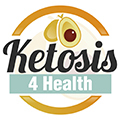
With the recent trends and hype about the ketogenic diet, people assume that this is probably a new and recently established diet plan. This, however, is not true. A ketogenic diet has been used over the years for different medical conditions such as epilepsy. Let us dig in and find out the answer to the ultimate question “is keto diet safe? 5 reasons explained to convince your curious minds.
What is a ketogenic diet?
A ketogenic diet is a low carb diet with an increased intake of fats and a controlled protein intake. A carbohydrate deficiency forces our body to break down fats and provide energy.
Ketones are the byproduct of this process. This metabolic state of using fats and producing ketones is called ketosis.
Is a Ketogenic Diet Safe?
Although a ketogenic diet has been proven to help reduce weight but is it safe in the long run? A ketogenic diet has its roots in the history of medicinal treatment, hence it should not be used without professional consultation. It might not harm a completely normal, healthy individual aiming to shed a few pounds but if you have a medical history then it may have some serious side effects. Following are risk factors involved in pursuing a self-made ketogenic diet plan:
- Nutritional Deficiency:
You are at a higher risk of nutritional deficiency because you are on a restricted diet which limits your intake of many dietary options. In the long run, it might result in deficient levels of vitamin C, vitamin B, magnesium, phosphorus and selenium.
- Stress on the Liver:
In the long run, a ketogenic diet might but pressure on your liver because it constantly has a lot of fat breaks down. A week or damaged liver might not be able to take the constant strain and get worse.
- Constipation:
Since it is a low carb, high fat and moderate protein diet which is low in fibrous foods such as legumes and grains, it might cause discomfort while passing stool or severe constipation. Individuals on a ketogenic diet are recommended to take certain dietary supplements that reduce constipation.
- Ketoacidosis:
For an individual with type one diabetes, an unsupervised keto diet with poor diabetes management can lead to a serious condition called ketoacidosis. Ketosis and ketoacidosis are two completely different terms. One is a normal process while the other is a medical condition. In ketoacidosis, your body starts producing a lot of ketones along with a high blood sugar level.
- Mood Swings and Keto Flue:
As the name states the symptoms of keto flu are similar to those of a regular flue; nausea, headache, fever, upset stomach, blurry vision, mood swings and foggy brain. These symptoms, however, are temporary for most of the individuals and fade away with time as the body gets used to the new routine and intake.
